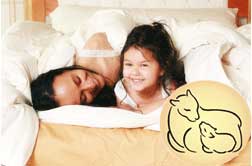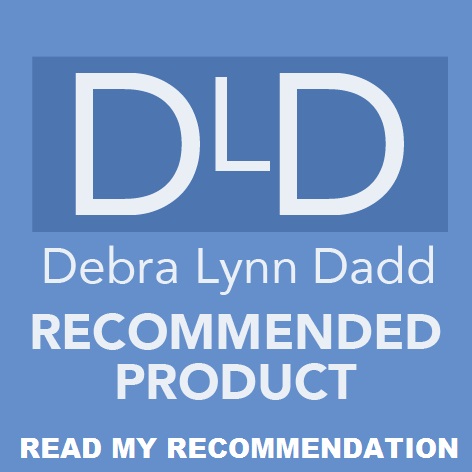
Water | Resources
Pest Control Naturally
This is my local “eco-friendly, safe, natural, and nontoxic” full-service pest control company, but I’m sharing it with you because they have a lot of good information on how to control household pests yourself, and well-chosen safe pest control products. Look under “Tips & Tricks” and “Store” in the main menu.
 |
Listen to my interview with Michael Piacenza, Owner, Certified Operator and K9 Handler of Advantage Pest Control |
Thrive Market
3000+ healthy, natural products, always 35-50% off, delivered free to your door. 15% off your first order. You can search by a variety of different choices such as manufacturer, special diets, made by hand, sourced direct from farmers, certified organic etc. It’s all packaged products you would find at any natural food store, they just cost less. Also personal care products and household cleaners, remedies and supplements. You have to register to look at the site (but it’s free), then with your first purchase you start a free 30-day trial membership. See how much you save, cancel at any time. At the end of the 30 days, it’s $59.95 to shop at Thrive Market for a year, but the idea is you should save much more than that. “We’ve curated the Thrive Market catalog to include each of the top products from hundreds of the leading natural products brands across categories like cooking ingredients, healthy snacks, nutritional supplements, natural home goods, and bath & beauty…What you will find: over 2,500 of the most popular natural products from the very best brands – brands that exude the values of health, sustainability, and premium quality.
Shepherd’s Dream

This company is about wool–sleeping on it and under it, cuddling with it, and loving the wool and the sheep and the land. Founder Eliana Jantz has been working with wool as long as I’ve been writing about natural products and her daughter, Sarah now owns the company. Eliana led the development of Eco Wool, “a collaboration which involves the sheep growers, wool processors, product makers and promoters in gradually developing an infrastructure which ensures environmentally friendly and sustainable practices and fair prices to the woolgrower.” All within a few hundred miles distance, the sheep are pastured, the wool is milled, and the products are sewn by local women in a renovated storefront, all in site of majestic Mt. Shasta in northern California. Outfit your entire bed with their unique heirloom quality wool mattresses (all-wool, latex/wool, and innerspring/wool), wool mattress topper, comforter, and pillows and you won’t need to count sheep to get a good night’s sleep anymore ! They also offer solid wood bed frames, an array of organic cotton sheeting and accessories for your natural bedroom. Shepherd’s Dream recently has expanded and now has a showroom in Ashland, Oregon. They love visitors and offer excellent customer service. Be sure to tell them “Debra sent me.”
! They also offer solid wood bed frames, an array of organic cotton sheeting and accessories for your natural bedroom. Shepherd’s Dream recently has expanded and now has a showroom in Ashland, Oregon. They love visitors and offer excellent customer service. Be sure to tell them “Debra sent me.”
 |
Listen to my interview with Shepherd’s Dream Owner Sarah Sunshine Smith. |
DIY Natural Bedding
 “We are a bedding parts supplier. We are here to enable you to make your own chemical free, natural bedding, be it pillows, mattresses, blankets, comforters, etc.” Because they are a parts supplier and not a mattress manufacturer, you make your own mattress with the materials you choose. It’s as simple as opening a big zippered bag, filling it with materials, and zipping it up. Or you can make your own completely from scratch with very natural materials in hard to find sizes. Componentsinclude wool from local farms, 100% natural latex, and GOTS certified organic fabric. She also offers sewing patterns for those who would like to save even more by sewing their own mattress ticking, and custom fire-retardant-free latex cuts for any DIY furniture project.
“We are a bedding parts supplier. We are here to enable you to make your own chemical free, natural bedding, be it pillows, mattresses, blankets, comforters, etc.” Because they are a parts supplier and not a mattress manufacturer, you make your own mattress with the materials you choose. It’s as simple as opening a big zippered bag, filling it with materials, and zipping it up. Or you can make your own completely from scratch with very natural materials in hard to find sizes. Componentsinclude wool from local farms, 100% natural latex, and GOTS certified organic fabric. She also offers sewing patterns for those who would like to save even more by sewing their own mattress ticking, and custom fire-retardant-free latex cuts for any DIY furniture project.
 |
Listen to my interview with Deborah Brenton, owner of DIY Natural Bedding. |
Open Your Eyes Bedding
![]() This innovative website sells a unique method of making mattresses, pillows, chairs and whatever you want by filling tubular organic cotton pouches or pods with certified organic buckwheat hulls. Very inexpensive and something you can do yourself.
This innovative website sells a unique method of making mattresses, pillows, chairs and whatever you want by filling tubular organic cotton pouches or pods with certified organic buckwheat hulls. Very inexpensive and something you can do yourself.
60 Minutes Finds Formaldehyde in Lumber Liquidators’ Laminate Flooring
I’ve been writing about not using laminate flooring for years. Now 60 Minutes has verified that laminate flooring contains amounts of toxic formaldehyde that may not meet health and safety standards.
Watch 60 minutes video and read transcript
New Studies Show Water Fluoridation Associated with Hypothyroidism
A new study from England found that locations with fluoridated water supplies were more than 30 percent more likely to have high levels of hypothyroidism, compared to areas with low levels of thyroid in the water.
The Chicago Tribune quoted an American endocrinologist with this warning:
“Clinicians in the United States should emphasize to patients this association and should test patients for underactive thyroid,” said Dr. Spyros Mezitis, an endocrinologist at Lenox Hill Hospital in New York City.
“Patients should probably be advised to drink less fluoridated water and consume less fluoridated products, including (fluoridated) toothpaste,” added Mezitis, who was not involved in the study.
This is a new study, but old news. I wrote about fluoride and thyroid just about a year ago. If you think that fluoride is affecting your thyroid, here’s what you can do to detox fluoride from your thyroid gland: Thyroid Problems? Detox Fluoride & Bromine
Dr Anne Steinemann Finds More Hidden Hazards in Green, All-Natural, Nontoxic, and Organic Products
Press Release
A University of Melbourne researcher has found that common consumer products, including those marketed as ‘green’, ‘all-natural’, ‘non-toxic’, and ‘organic’, emit a range of compounds that could harm human health and air quality. But most of these ingredients are not disclosed to the public.
Dr. Anne Steinemann, Professor of Civil Engineering, and the Chair of Sustainable Cities, from the Department of Infrastructure Engineering, Melbourne School of Engineering, is a world expert on environmental pollutants, air quality, and health effects.
Professor Steinemann investigated and compared volatile organic compounds (VOCs) emitted from 37 different products, such as air fresheners, cleaning products, laundry supplies, and personal care products, including those with certifications and claims of ‘green’ and ‘organic’. Both fragranced and fragrance-free products were tested.
The study, published in the journal Air Quality, Atmosphere & Health found 156 different VOCs emitted from the 37 products, with an average of 15 VOCs per product. Of these 156 VOCs, 42 are classified as toxic or hazardous under US federal laws, and each product emitted at least one of these chemicals.
Findings revealed that emissions of carcinogenic hazardous air pollutants from ‘green’ fragranced products were not significantly different from regular fragranced products.
In total, over 550 volatile ingredients were emitted from these products, but fewer than three percent were disclosed on any product label or material safety data sheet (MSDS).
“The paradox is that most of our exposure to air pollutants occurs indoors and a primary source is consumer products. But the public lacks full and accurate information on the ingredients in these products. Our indoor air environments are essentially unregulated and unmonitored,” Professor Steinemann said.
The most common chemicals in fragranced products were terpenes, which were not in fragrance-free versions. Terpenes readily react with ozone in the air to generate a range of additional pollutants, such as formaldehyde and ultrafine particles.
At this time, consumer products sold in Australia, the US and around the world are not required to list all ingredients, or any ingredients in a chemical mixture called ‘fragrance’.
“Given the lack of information, consumers may choose products with claims such as green, natural, or organic, but those claims are largely untested,” Professor Steinemann said.
Professor Steinemann will continue to investigate how and why we’re exposed to pollutants and ways to reduce risks and improve health.
Additional Information:
- Products selected are commonly used in Australia, the US, and other countries in a range of environments (e.g., homes, schools, hospitals, workplaces, hotels, restaurants, stores, residential buildings, parks, child care and aged care facilities, gyms, homeless shelters, government buildings, airports, planes and public transport).
- Gas chromatography/mass spectrometry (GC/MS) headspace analysis was used to identify VOCs emitted from 37 products, representing air fresheners and deodorizers (sprays, gels, solids, oils, and disks), laundry products (detergents, dryer sheets, and fabric softeners), cleaning supplies (all-purpose cleaners, window and surface cleaners, disinfectants, and dishwashing liquids), and personal care products (soaps, hand sanitisers, sunscreens, lotions, baby lotions, deodorants, shampoos, and baby shampoo).
- Ingredients in consumer products and in fragrance formulations, are exempt from full disclosure to the public.
- For laundry products, cleaning supplies, and air fresheners, labels do not need to list all ingredients, or the presence of a fragrance in the product.
- For personal care products and cosmetics, labels need to list ingredients, except the general term “fragrance” or “parfum” may be used instead of listing the individual ingredients in the fragrance.
- For all products, material safety data sheets do not need to list all ingredients.
- Fragrance ingredients are exempt from full disclosure in any product, not only in Australia and the US but also internationally.
The full article is available, free of charge, on Professor Steinemann’s website (under Recent Publications, “Volatile Emissions from Common Consumer Products”): http://people.eng.unimelb.edu.au/asteinemann/
Glyphosate Found in USDA Certified Organic Foods
Tropical Traditions
Brian Shilhavy, CEO of Tropical Traditions, sent a letter this week to Tropical Traditions customers explaining why the company has had so many of its products out of stock or back ordered at the beginning of 2015.
Tropical Traditions found out in late 2014 that much of the USDA certified organic wheat supply in North America was contaminated with residues of the herbicide glyphosate. Tropical Traditions has been in the process of testing all of its products for the presence of glyphosate since that discovery. The products that have been tested for glyphosate and found to be clean are all listed on the Healthy Traditions website now.
Besides organic wheat and other organic grains that were tested positive for glyphosate and removed from the Tropical Traditions product line, they also tested and found glyphosate present in organic flax seeds, organic hemp, and organic freeze-dried strawberries. Products containing those ingredients are no longer available on the Tropical Traditions websites.
Shilhavy explained why the process of determining which products are contaminated with glyphosate and which ones are clean is not a simple process:
It might seem that it is a simple procedure for us to simply test all of our products for the presence of glyphosate, and know right away which products we can continue selling, and which ones we cannot. Unfortunately, it is not so simple. We have to carefully consider how the product is produced or grown, and how likely a sample taken from a certain batch is to represent all products grown or produced by that supplier.
If a product comes from a large company or supplier, just testing what we have in our inventory at any given time is no guarantee that this product will always test clean. This is especially true if the supplier is sourcing the product from many sources or many farms, and mixing it all together before packaging into retail sizes. Therefore, we need our suppliers to work with us in ensuring each sample that is tested is truly representative of a batch that can be traced directly back to the producer, ensuring that these producers are consistently producing and harvesting products that are testing clean from glyphosate.
Some of our suppliers have expressed a willingness to work with us on this issue, some have not. Hence, we will be dropping some of our product lines because we cannot be reasonably sure that we are selling you products that are not contaminated with glyphosate, and we would rather sell no products at all than sell products that are contaminated, no matter how small that contamination may be.
Tropical Traditions to Phase Out USDA Organic Certification on its Products and Switch to “Healthy Traditions”
 Tropical Traditions also announced that it will phase out the USDA certified organic certification on its privately labeled products by the end of 2015. In its place, they will be using the “Healthy Traditions” approval seals on their products, which currently includes: Traditionally Produced, GMO-tested, and Glyphosate-tested.
Tropical Traditions also announced that it will phase out the USDA certified organic certification on its privately labeled products by the end of 2015. In its place, they will be using the “Healthy Traditions” approval seals on their products, which currently includes: Traditionally Produced, GMO-tested, and Glyphosate-tested.
The Healthy Traditions standards are explained on the Healthy Traditions website:
The purpose of Healthy Traditions is to define the standards of healthy food and products we use when producing or choosing products to sell in our network. These are not new standards for us, but the same standards we have followed since 2002, when we first started shipping virgin coconut oil to the U.S. from the Philippines. Today’s certifications and labeling have become so watered-down and confusing, that we thought it was time to define our own standards, so that the consumer can better understand the commitment we have to high standards that promote a healthy lifestyle.
The goal of the Healthy Traditions project is to eventually develop a nationwide network of producers and suppliers that meet a higher standard than current USDA organic standards, which currently allow for glyphosate and other pesticide residues to be present. Healthy Traditions maintains a ZERO percentage tolerance for the presence of glyphosate, GMOs, and other herbicides and pesticides.
Tropical Traditions asked its customers to be patient as they go through the testing process to determine which products are at risk for glyphosate contamination, and which products are clean. They hope that consumers will appreciate the extra work they are putting in to develop their glyphosate-tested and GMO-tested programs. They are believed to be the only company currently testing products for the presence of glyphosate.
Their goal is that consumer demand for glyphosate-tested products will grow and encourage other companies and producers in North America to start testing their products for glyphosate as well.
Read this article and comment at HealthyTraditions.com.
Brian Shilhavy is the CEO of Tropical Traditions and the Editor of Health Impact News.
Best Bottled Sparkling Water
Question from Adriana
Hi Debra,
I would like to know if you have any information on bottled sparkling water brands and which ones are the best ones to drink.
Debra’s Answer
I haven’t ever investigated bottle sparkling waters or still waters. I don’t often drink them.
I looked online for some ratings, but they didn’t rate what I think needs to be looked at.
There are a few major problems with bottled water.
First is the bottle itself, which can leach plastic into the water. Sparkling waters are usually bottled in glass so that isn’t a problem for your question.
Then there is the source of the water. Many bottled sparkling waters come from underground sources, which sounds pure, but they may be contaminated with unknown pollutants.
And finally, bottled waters are not “natural”—they are processed in a processing plant as they are bottled, so it’s not like drinking water from a natural spring./p>
It’s better to drink sparkling water than a soda.
But best is to filter your own water at home, which is why I use and recommend Pure Effect Advanced Water Filters.








